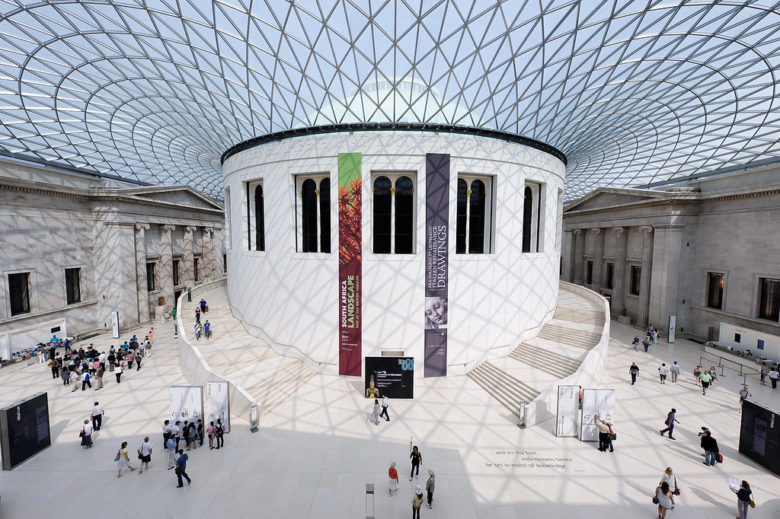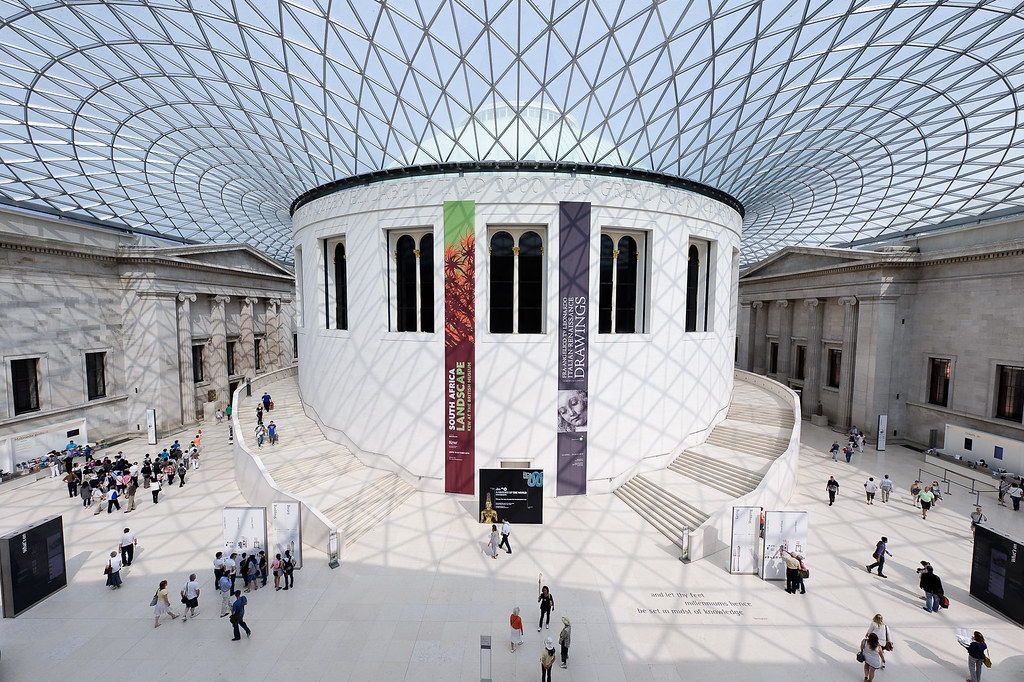
Recently I joined a tour of the British Museum in which we viewed exhibits connected to events in the Bible. Since the British Museum can be overwhelming, I welcomed some guidance.1 As we moved through various items, from Jehu to Paul, I found myself drawn to one particular piece.
The Ram in the Thicket
This small statue is from Ur, dated to 2500 BC, before the time of Abraham. Scholars believe it was used as a support for a pedestal or a table. The amount of detail, along with the precious stones and metals used for this piece, reveal the advanced craftsmanship and opulence available in Ur. The statue has a wood base, gold leaf, copper alloy, and sophisticated carvings in lapis lazuli. The tiny base features an intricate mosaic of red limestone and shells.
Abraham was living in Ur when God called him to pack up and move. He left behind everything familiar to him. Sometimes I read the Genesis account and gloss over what Abraham gave up as he followed God’s call:
The LORD had said to Abram, “Go from your country, your people and your father’s household to the land I will show you.” (Genesis 12:1)
[callout img=”https://files.logoscdn.com/v1/files/18159538/content.png?signature=5bKcMvRYnE5qcZzxrW7SvnMKnAY” text=”Grasp the Bible’s origins in human suffering and resilience in David Carr’s” link_url=”https://www.logos.com/product/168014/holy-resilience-the-bibles-traumatic-origins?utm_source=academic.logos.com&utm_medium=blog&utm_content=2019-06-14-british-museum-faith-danieleng&utm_campaign=promo-logospro2019″ link_text=”Holy Resilience: The Bible’s Traumatic Origins”]
The statuette of the ram reminds me that the patriarch of God’s people and of our faith didn’t just leave his relatives. He left Ur, a cosmopolitan, advanced, educated, wealthy society. To me, this understanding of the area adds more meaning to the description of Abraham’s faith in Hebrews:
By faith Abraham, when called to go to a place he would later receive as his inheritance, obeyed and went, even though he did not know where he was going. By faith he made his home in the promised land like a stranger in a foreign country; he lived in tents, as did Isaac and Jacob, who were heirs with him of the same promise. For he was looking forward to the city with foundations, whose architect and builder is God. (Hebrews 11:8-10)
[callout img=”https://files.logoscdn.com/v1/files/6819271/content.jpg?signature=uBcSQ0F28i4cRFBgQLQHA-_ScVI” text=”Take a group at your church through the life of Abraham with” link_url=”https://www.logos.com/product/28597/abraham-following-gods-promise?utm_source=academic.logos.com&utm_medium=blog&utm_content=2019-06-14-british-museum-faith-danieleng&utm_campaign=promo-logospro2019″ link_text=”Abraham: Following God’s Promise”]Ur wasn’t a small and backwards village. It was a major city with abundant wealth and advanced infrastructure. Abraham left all this to live in tents, because he believed in an even greater Architect and Builder.
The author of Hebrews points to the object of Abraham’s faith: God, that same Architect and Builder. If not for the power and character of God, Abraham’s act of leaving Ur would have been utterly foolish, and ultimately fruitless. But because his faith was in the right Figure, he is commended in Hebrews 11.
Abraham saw something greater than the luxury and progress around him; he acted on a faith placed entirely in God. This is the kind of faith the author of Hebrews exhorts his hearers to have: a conviction in the promises of a trustworthy God.
Can’t make a visit to the British Library anytime soon? Further your learning, and deepen your research, with the 25-volume Library of Hebrew Bible/Old Testament Studies: 2016 from Bloomsbury T&T Clark.
Available now for Pre-order, only on Logos.
- I highly recommend this tour by Christian Heritage London.






Ur and Haran all seemed to be part of the Fertile Crescent and Haran most fertile of all. I’ve long assumed for Terah leaving Ur and then Haran to go to Canaan was a bit too much for Him. I don’t know if He was first to receive the command to go to Canaan, (the Bible said he was the one that left to go to Canaan) but I believe that it was too much a snare for him, so yes I understand, Abraham’s faith. For sure they would have heard of Canaan not being as lush as Haran.
[…] 1. Daniel K. Eng: What the British Museum Taught Me About Faith […]